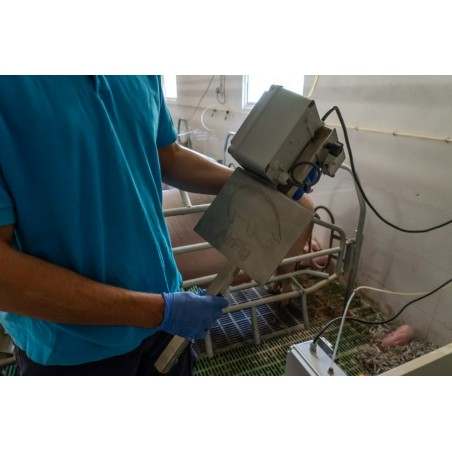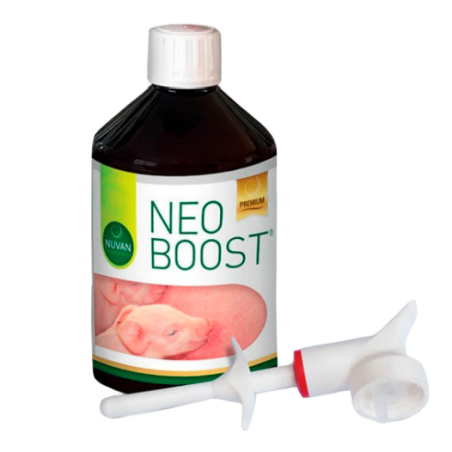In pig production, the management of piglets by batch lactation due to the increase in litter sizes of sows may result in intermittent early neonatal maternal separation (NMS). We speculated that NMS may affect the piglets cognitive growth performance and health. To determine the extent of the effect, 12 litters of crossbred piglets (Large White × Duroc × Min-pig) were used in this trial. Piglets in the control group (n = 6) were given a standard feeding method during lactation. Piglets in the experimental group (n = 6) were subjected to the NMS model, in which sows were led out of the enclosure with food every day (8:00–11:00 and 13:00–16:00) starting from postnatal day 7. During the separation, the piglets were supplemented with milk. All experimental piglets were weaned on postnatal day 35. The piglets were observed for aggression, play, mutual sniffing, and exploratory behavior on postnatal days 7, 8, 21, 22, 34, 35, 38, 39, 51, 52, 64, and 65. Physiological indicators, namely serum adrenaline, cortisol, interleukin (IL)-1β, IL-4, IL-6, and tumor necrosis factor (TNF)-α were measured on postnatal days 35, 38, and 65, while piglet growth performance was evaluated during suckling and 1 month after weaning.
The results showed that aggressive behavior in the MS group was significantly higher than that in the control group. Playful and mutual sniffing behaviors in the MS group were significantly lower than those in the control group except for postnatal days 38 and 39. Active exploratory behavior in the MS group was significantly higher than that in the control group on postnatal days 7 and 8, and postnatal days 21 and 22. The frequency of belly-nosing behavior was significantly higher in the MS group than that in the control group except for postnatal days 64 and 65. Compared with the control group, epinephrine, IL-1β, IL-6, and TNF-α concentrations on postnatal days 35, 38, and 65 were significantly increased in the MS group, while IL-4 concentration was significantly decreased. Compared with the control group, the piglet diarrhea rate in the MS group during suckling was significantly increased, the weaning weight was significantly decreased, and it had no significant effect on the body weight at the end of the trial.

In conclusion, the early intermittent neonatal maternal separation created stress and affected the growth performance of piglets during suckling. However, the growth rate was improved by compensatory measures during late weaning.
Cheng Z and others. Effects of early intermittent maternal separation on behavior, physiological, and growth performance in piglets. Journal of Animal Science. 2023; 101: skad122. https://doi.org/10.1093/jas/skad122





